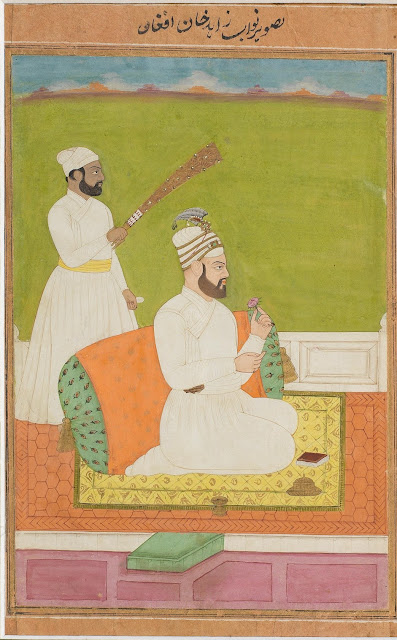Nawab Zahid Khan Afghan (Saddozai) served as governor of Multan province of the Mughal empire from 1738 to 1748. He was a Maudud Khel Saddozai.
In 1748 Ahmad Shah Durrani wrote a letter to Nawab Zahid Khan, asking him to forget the old rivalry between Khizr Khel and Maudud Khel branches of Saddozai tribe and cooperate with him for the establishment of an Afghan state in India. Nawab Zahid Khan not only spurned his offer but also used derogatory remarks against him. He decided to remain loyal to the Mughal empire. [Tazkirat-ul-mulk as cited by “Multan under the Afghans, 1752-1818” by Ashiq Muhammad Khan Durrani]
Historical background of Multani Afghans
When Kandahar was in the possession of Mughal emperor Shahjahan for the short period from 1638 to 1649, he had created a party of Afghans, mainly Abdalis, as his supporters. In 1649, Kandahar was recaptured by Safavid emperor Shah Abbas II, and these Afghan supporters of Shahjahan left their country and accompanied the Mughal Prince Aurangzeb, who had been deputed by his father to recover Kandahar. Aurangzeb, when ascended the throne at Delhi, settled these Abdalis at Multan. Later, many more of their tribe also joined them. They became known as Multani Afghans. One of these Abdalis was Jalal Khan saddozai (maternal uncle of Zaman Khan, the father of Ahmad Shah Abdali), son of Aidal Khan, son of Zafran Khan, son of Malik Saddu. The governorship of Multan and the Derajats had always been with these Afghan colonists untill these places were captured by Ranjit Singh.



